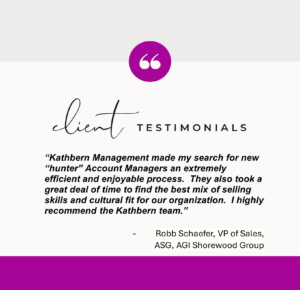Why stepping aside might be the best way to grow your business
(Reading time: 4 minutes)
Does this sound familiar?
After working as an HVAC technician at a large company for 10 years, Jeff realized that he knew enough that he could set out on his own. He incorporates, buys a truck, and gets his wife to design a logo. He hires an assistant, and between the two of them, they have more than enough work to keep them busy. It’s not too long before his assistant gets a truck of his own, and they bring on another technician.
 After three years in business, Jeff spends most of his time promoting the business, while his team of 10 technicians take on the calls. He’s got a bookkeeper who comes in once a week and a scheduler to manage who goes where. The company is run a bit like an extended family—and brings in around $4 million annually. It’s enough to cover the expenses, pay everyone a fair salary, and leave a respectable profit to reinvest or save at the end of the year.
After three years in business, Jeff spends most of his time promoting the business, while his team of 10 technicians take on the calls. He’s got a bookkeeper who comes in once a week and a scheduler to manage who goes where. The company is run a bit like an extended family—and brings in around $4 million annually. It’s enough to cover the expenses, pay everyone a fair salary, and leave a respectable profit to reinvest or save at the end of the year.
To grow or not to grow
That leaves Jeff with a decent business and a crucial question: what’s next. Should he continue to grow the business, or keep it as is, humming along, for the foreseeable future. It’s a critical question, because if he chooses to grow, he’ll also have to think about how to navigate the path from entrepreneur to CEO.
When Jeff started his company, it was based on a strong foundation of technical expertise and a good instinct for sales. This combination of skills drove growth, but if the business were to expand, new challenges would arise. What was once manageable would become more complicated, and Jeff might need to bring in a bigger team to manage the business.
It’s one of the most significant transitions faced by a business owner, and a shift that requires a new skill set—one that goes far beyond the expertise that brought someone like Jeff success when he started the business. He has to master business administration, as well as learn how to develop control systems, policies, procedures, and documentation to guide key leaders and hold them accountable.
It’s a seismic shift that many owners simply aren’t prepared for.
Jeff—who is used to knowing every employee personally and getting directly involved in every decision—will have to avoid the temptation of running around trying to do everybody else’s job. He’ll need to trust the people he’s hired to make decisions.
Some owners respond by becoming authoritarian figures who make all the decisions themselves, working long hours and burning out in the process. In these cases, the business may hit a ceiling, with the owner unwilling or unable to scale the company beyond a certain point.
That’s why some owners prefer a small business that they can oversee on their own. As long as it continues to provide a comfortable lifestyle, the risk of further stress may not be worth the stress from growth.
Is it time to let go?
However, Jeff has a choice. Many in fact.
He could keep the business as it is and reinvest in himself—acquiring the skills he needs to move from entrepreneur of a going concern to the CEO of mid-sized business.
 Or he could hire a CEO to take over the leadership role. Hiring a skilled, professional CEO would leave Jeff free to focus on what he wants to focus on. That could mean being an ambassador for the company—sponsoring baseball teams in little league, sitting on not-for-profit boards—or focusing on product innovation, or even sticking with sales. It could even mean taking on a lead role in industry groups or trade associations, or even just doing what got him started on this path: working as a technician.
Or he could hire a CEO to take over the leadership role. Hiring a skilled, professional CEO would leave Jeff free to focus on what he wants to focus on. That could mean being an ambassador for the company—sponsoring baseball teams in little league, sitting on not-for-profit boards—or focusing on product innovation, or even sticking with sales. It could even mean taking on a lead role in industry groups or trade associations, or even just doing what got him started on this path: working as a technician.
You can grow your company without sacrificing your own growth
Choosing to step aside and hire a CEO can feel like a leap of faith. However, if Jeff finds the right person with the experience and expertise to scale the business, he’ll create a more sustainable future for his business and free himself from the pressure of managing the day-to-day operations.
Look in the mirror
Jeff’s first step—and yours—is self-reflection.
If he’s content with the way things are (which is perfectly okay), he’ll need to continue to make sure the business continues as it is and avoids accidentally upsizing to a point where things become unwieldy.
Maybe he wants more for the business, in which case, an honest evaluation of whether he has the skillset to achieve that on his own is in order. If he doesn’t, it might be time to let himself go and engage us to help him find the right person for the job.
Larry Smith is the founder and president of Kathbern Management, an executive search firm based in Toronto. Kathbern helps companies find the executives and senior managers who not only have the experience and credentials to fulfill their responsibilities, but also have the emotional and “fit” requirements that will enable them to be successful in a particular environment. Kathbern simplifies the process and, through deep research, brings more and better candidates forward than would ever be possible through a do-it-yourself passive advertising campaign.
Learn more at www.kathbern.com, or contact us today for a free consultation about your key person search. Follow us on LinkedIn, Facebook, and Twitter.

